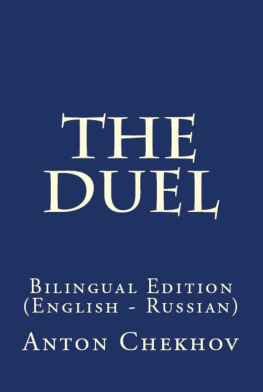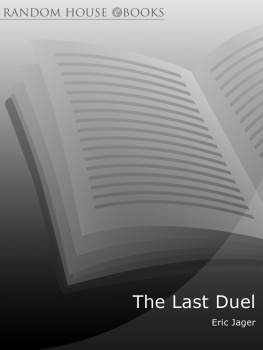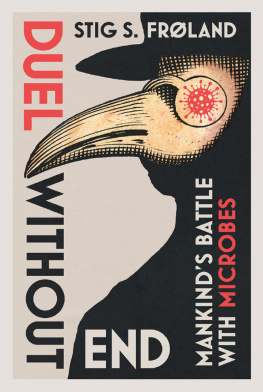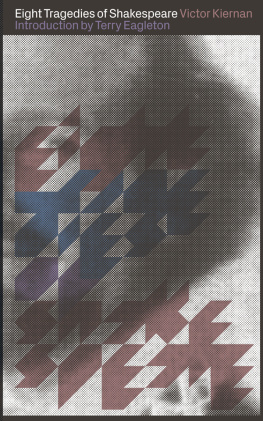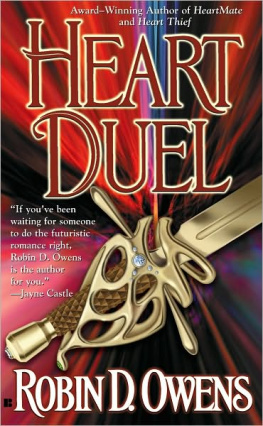
About Victor Kiernan
Victor Kiernan (19132009) ranks among Britains most distinguished historians. After a fellowship at Trinity College, Cambridge, and a long period spent teaching in India, he joined the History Department at the University of Edinburgh, where he served as professor of modern history from 1970 until his retirement. Over the course of his life he authored such works as The Lords of Human Kind, America: From White Settlement to Global Hegemony, Shakespeare: Poet and Citizen and numerous others, as well as translating two volumes of Urdu poetry.
Other works by Victor Kiernan available from Zed Books
Shakespeare: Poet and Citizen
Eight Tragedies of Shakespeare
The Lords of Human Kind: European Attitudes to Other Cultures in the
Imperial Age
America: From White Settlement to Global Hegemony
About David Blackbourn
David Blackbourn taught for many years at London and Harvard, and now holds the Cornelius Vanderbilt distinguished chair of history at Vanderbilt University. A fellow of the British Academy and the American Academy of Arts and Sciences, he is the author of six books on German history, the most recent of which is The Conquest of Nature: Water and the Making of the Modern German Landscape.
THE DUEL
IN EUROPEAN HISTORY
Honour and the Reign of Aristocracy
VICTOR KIERNAN
Introduction by David Blackbourn

Zed Books
LONDON
This edition of The Duel in European History was first published in 2016 by Zed Books Ltd, The Foundry, 17 Oval Way, London SE11 5RR, UK.
www.zedbooks.net
Original edition published by Oxford University Press in 1988.
Copyright Heather Kiernan, 1988
Introduction David Blackbourn, 2016
The right of Victor Kiernan to be identified as the author of this work has been asserted by him in accordance with the Copyright, Designs and Patents Act, 1988.
Cover designed by www.alice-marwick.co.uk
Cover image: Universal History Archive/UIG via Getty Images
All rights reserved. No part of this publication may be reproduced,
stored in a retrieval system or transmitted in any form or by any means, electronic, mechanical, photocopying or otherwise,
without the prior permission of Zed Books Ltd.
A catalogue record for this book is available from the British Library.
ISBN 978-1-78360-839-3 hb
ISBN 978-1-78360-838-6 pb
ISBN 978-1-78360-840-9 pdf
ISBN 978-1-78360-842-3 mobi
ISBN 978-1-78360-841-6 epub
To Heather
CONTENTS
PREFACE
THE story of duelling has a fascination of its own; it takes on a deeper significance when looked at in its social, evolutionary setting. As a badge of rank, the privilege of duelling was a not unimportant item, down to the beginning of this century, in the panoply of Europes dominant classes; it was an assertion of their pre-eminence. All corporate claims to superiority and exclusive rights have an unnatural character, and a malign influence on the claimants and on society as a whole; a fact more easily recognized when they are put forward by castes, nations, races, than by classes, in whose case they are too often admitted without question. From the delusive rationality of the medieval trial by combat, the invoking of divine judgement, duelling descended in later times to a complete, scarcely disguised, unreason. It could not be otherwise with an institution cherished by minorities with no rational title to the place they held, in societies distorted and out of joint.
In 1789 the cry for Liberty, Equality, and Fraternity was an outburst from the depths of a social consciousness still haunted by dreams of a golden age long gone by, when mankind, simple and unspoiled, lived in amity. Its echoes were stifled before long, though never entirely silenced. In our day versions of elitism, arguments from sociology or genetics or other cupboards to prove the naturalness and inevitability of the subjection of the many to the few, are still aggressively alive. A study of the long ascendancy of aristocracy may be granted some practical and topical, as well as historical, bearing. Anyone engaged on a lengthy study must often stand in need of help. My first debt, older than this study itself, is to the writer whose manifold descriptions and discussions of duelling first fired my interest in the subject, Walter Scott. I have devoted a chapter to his thinking about it, a tribute warranted by his place in British literature, his European fame, and his anxious preoccupation with the duel, as a hereditary curse of his class and his civilization. Scotts concern with it is an expression of his more serious side as a novelist, seldom adequately recognized. No other writer had more to say about it, or wrote of it more earnestly.
My second debt is to my wife, for encouragement all through the writing of this book and for valuable aid in the search for materials, especially those relating to her native Canada. Assistance from many others on a miscellany of points is acknowledged in footnotes. I must mention here two allies in particular: my brother, who has been my guide to the Sagas, and Dr Brian Smith, County Archivist of Shetland, indefatigable in giving me the benefit of his rare knowledge of his native region of Scotland, and of his wide historical and literary reading.
V.G.K.
Stow
February 1987
INTRODUCTION
David Blackbourn
Its famous victims included Alexander Hamilton, Alexander Pushkin, Mikhail Lermontov and Ferdinand Lassalle. Goethe and Heine both did it, although not Wagner. Characters in Maupassant, Turgenev and Schnitzler did it. The French Republican leader Georges Clemenceau reportedly did it on twenty-two occasions. In nineteenth-century Europe almost everyone seemed to be doing it, except the English. We are talking about fighting duels, the subject of Victor Kiernans richly textured and very readable book, now happily available in a new edition.
It will be clear to readers of The Duel in European History: Honour and the Reign of Aristocracy that Kiernan must have been collecting references for many years. One imagines a slew of file cards and slips of paper, the product of omnivorous reading. Yet however long in the making, Kiernans book appeared around the same time as several other works on the subject. It followed on the heels of Franois Billacois examination of duelling in early modern France, and was followed by a cluster of books in the early 1990s by Ute Frevert, Robert A. Nye, Friedhelm Guttandin and Kevin McAleer.of social life, nowhere more clearly on display than in the elaborate choreography of the duel. Finally, interest in the duel surely owed a good deal to the emergence of gender as an important category of historical analysis. Masculinity and the male sense of honour feature in the titles of many works on duelling from the early 1990s. They also have an important place in Victor Kiernans book.
One thing that distinguishes his book from the others is its remarkable range of reference across space and time. Kiernan takes in developments from Spain to Muscovy. The penultimate chapter extends the account to Europe Overseas, places where the duel was transplanted. The chronological reach stretches from the distant origins of the duel in the Germanic and Celtic ordeal by battle to the beginning of the twentieth century. Kiernan outlines the more immediate antecedents of the practice in the Mediterranean vendetta and the medieval cult of chivalry, with its tournaments, knightly jousts and pas darmes. He really hits his stride in three chapters that trace the emergence of the modern duel in the sixteenth and seventeenth century, first in Italy, then in France, before it spread to the rest of Europe. Kiernan links its growth to the status anxiety of the aristocracy, which found in the duel a means to mark itself off from rising moneyed classes and to confirm its own identity and sense of worth during a period when centralized monarchies were being consolidated. He then takes the reader inside the practice of duelling its procedures, conventions, and weapons. As Kiernan notes here, one characteristic of the modern duel was its typically non-lethal character, as a result both of the weapons of choice (the rapier, the unrifled pistol) and the rules of engagement.
Next page


